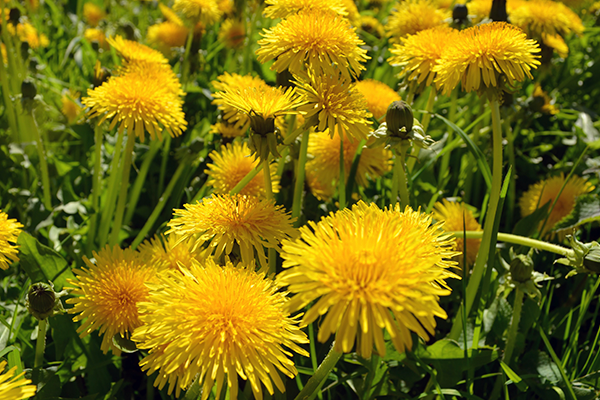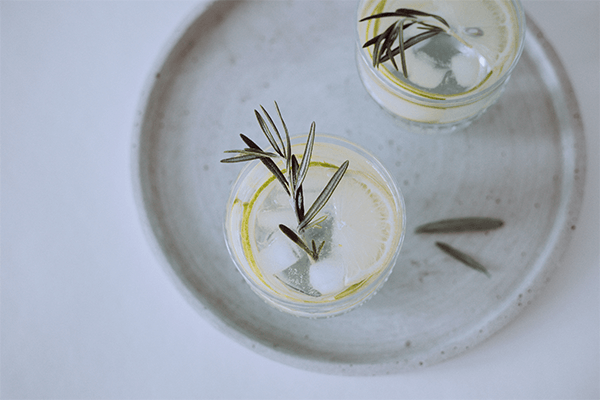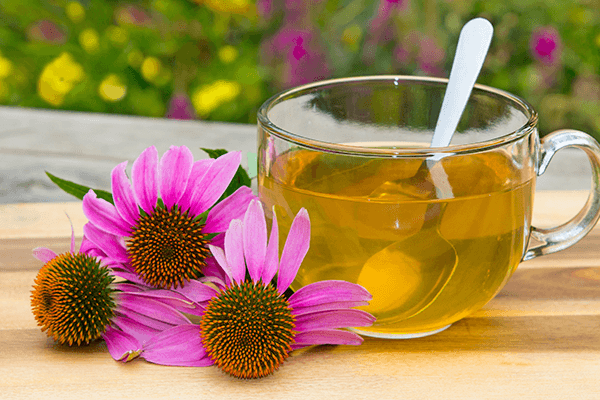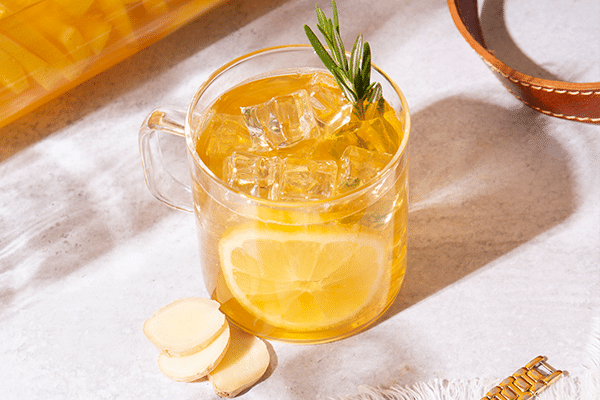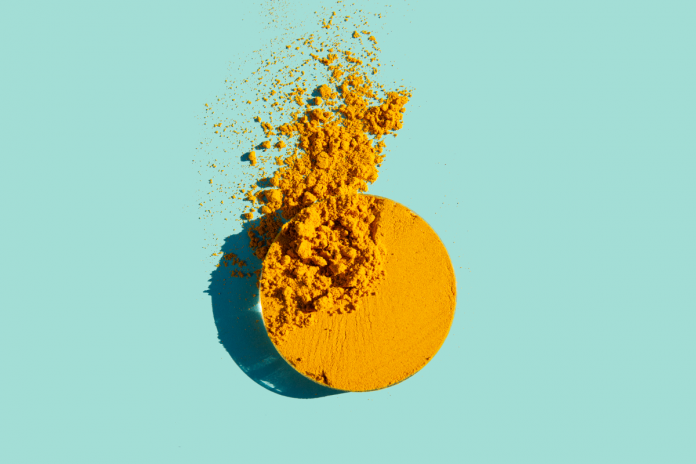Ahhh, dandelions. Hopefully your childhood memories include happy moments of blowing their wispy fluff into the sky, along with a fervent wish.
But have you ever drank them?
Say what? We may think of them only as a pesky weed cluttering up our lawns, but dandelions have been noted from the 10th century on for their medicinal properties – ranging from detoxification to immune system support.
The benefits of “lion’s tooth” (as dandelions were originally known) have been pervasive across cultures, from the great Arab physicians, through traditional Chinese medicine, Ayurveda, and North American native practice.
Modern science is confirming much of this thousand-year experience, as we’re digging into below.
If you’re looking to add to your repertoire of herbal teas or routine green tea, you may want to take a closer look at what we’ve learned about dandelions.
What is Dandelion Tea?
Believe it or not, the entire dandelion plant is edible and might rival any other vegetable for its nutritional content. Known mostly for its vitamin A content, it also contains vitamins B, C, D and K as well as antioxidants, zinc, potassium, calcium, and inulin (prebiotic) fiber. (1)
Ever eaten dandelion greens? (Also known as the dandelion leaf.) They’re often added to gourmet salads for their delightfully bitter digestion-supporting compounds.
Dandelion teas can be made from the flower, the leaves, or the roasted root – or any combination of the above.
Not just a worthless weed – it does have value! (Something for the avid gardener to keep in mind when looking out at the lawn that was a beautifully manicured green just a few days ago and is now a yellow and white mosaic.)
Potential Health Benefits of Dandelion Tea
Here’s a sampling of the health benefits of dandelion root extract, flower, and leaf that is the ingredient in dandelion tea. The water is in effect the carrier of the dandelion – and its therapeutic molecular compounds.
It’s important to recognize that some of these studies are lab findings, some are based on animal trials and a more limited set of studies using human subjects.
What is most compelling is not any one finding, but the accumulation of evidence supporting the conclusion that dandelion tea is really good for you. Really – the scientific examples below date from the 1980s to the present and have been replicated across many studies.
1. Diuretic properties
These have given dandelion tea a reputation as a detox cleansing aid. (2) Indeed, dandelion root has been used as a digestive aid for many centuries and to improve skin condition, sugar levels, and blood pressure.
The value seems to come from the combination of so many nutrients and compounds.
Its calcium aids bone health. It’s high in fiber, a core foundation of gut health. It seems to replenish potassium loss. It contains a wide range of antioxidants, and dandelion tea’s beta-carotene has been identified as its most effective component in protection against cellular damage.
2. Gastrointestinal benefits
One of the dandelion’s many historic uses is to aid with bloating and overall health of the digestive system.
And according to one study on 24 patients with colitis, researchers found that 96% reported the disappearance of pains in the large intestine within 15 days of treatment. (3) A 2018 study showed “dandelion has a strong cytoprotective effect” in treating inflammation of the colon. (4)
3. Supports Healthy Anti-Inflammatory Response
Multiple studies show strong improvements to the body’s natural anti-inflammatory response, which is attributed to the abundance of glucoside sugars and the general antimicrobial properties of dandelion root.
One interesting experiment shows the pervasive reach of these in treating dental pathogens. (5) Most research on dandelion health benefits refers to anti-inflammation, if only in passing.
4. Support healthy blood sugar levels
Dandelion tea has been shown to stimulate the release of insulin in pancreatic beta-cells, help modulate blood sugar levels, and release a range of protective bioactive aids, including sesquiterpene lactones, taxasterols, and other polysyllabics. (6)
5. Prebiotic and probiotic properties
The overall body of research shows strong and consistent benefits of dandelion greens on gut health but mainly as one of many options in vegetables and herbs.
A more focused area of a recent study has been on its impacts on the growth of the bifidobacteria in the large intestine that promote gut health. (7) It’s the fructooligosaccharides at work, of course.
6. Supports healthy liver function
The research literature here is extensive, with multiple, well-designed, and rigorous methodologies. A summary analysis points to the “overwhelming evidence” of use of dandelion in traditional and natural medicine worldwide but a lack of sufficient data from well-conducted clinical trials to justify use in treating chronic liver disease. (8)
It’s hard to dismiss not just this accumulation of research but the related history of dandelion root in medicine. It extends across millennia, continents, ailments, and treatments.
These range from Kashmir (bone fractures), India and 10th century Arabia (liver and kidney problems, snakebites), France (diuretic effect), and Native Americans (skin and upset stomach.)
Fun fact: the scientific Latin term of taraxacum is of Ancient Greek origin and shows that dandelion has always been seen as medicinal in its basic nature and identity: “taraxos” means trouble or disorder and “akos” remedy.
What Does Dandelion Tea Taste Like?
Assuming that dandelion root is indeed good for your health, how about its appeal to your taste buds?
There are two main varieties of dandelion tea: roast and flower. Reviewers are consistent in recommending the flowery version. They regard the roasted tea as too bitter and coffee-like. Note, however, that this tea could be an excellent herbal (caffeine-free) coffee substitute. In fact, it’s also known as “dandelion coffee.”
With its flowery taste profile, the flower tea is less earthy than most herbal teas. While some proponents rate it as delicious, the not atypical assessment seems to be that the roasted tea is “a turnoff” and even “offensively bitter” and that the flower tea needs a boost from just about any taste enhancer, such as hibiscus, chamomile or honey.
How to Make Dandelion Tea
To reap the benefits of dandelion tea, you’ll definitely want to use the dandelion’s fresh flowers, dried roots, or loose leaves rather than tea bags. You can find organic dandelion leaves and dandelion flowers at many health food stores.
The flower tea is very delicate. It’s easy to overpower it with hot water from any faucet that is high in mineral content. For the same reason, the water should be off the boil and the tea steeped for long enough to bring out its flavor – approximately 5-10 minutes.
Many people who drink it for its health benefits add vanilla, honey, turmeric or ginger to enrich the taste.
Side Effects
If you have a ragweed allergy, you’ll definitely want to steer clear of dandelion tea to avoid an allergic reaction.
Final Thoughts
If you’ve never considered dandelion as something to add to your diet, maybe this will make you reconsider!
Whether it’s dandelion greens in your salad or dandelion root tea in your mug, you’ll be partaking in a wonder plant that has centuries of tradition behind it.
